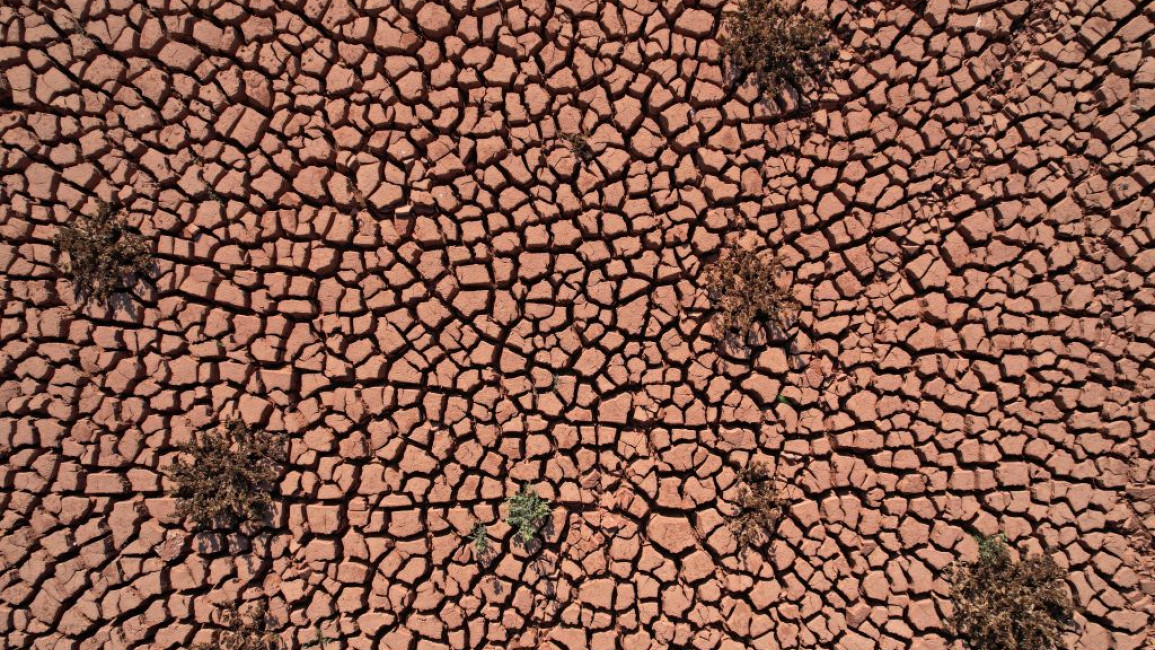Half of Iraqis in drought-hit parts of country need food assistance, says NRC
Half of families living in drought-hit parts of Iraq say they need food assistance as a severe water scarcity crisis worsens, the Norweigan Refugee Council warned in research published Thursday.
One-fifth of families living in drought-hit areas across Iraq surveyed by the Norweigan Refugee Council in November said that they never have enough to eat, as water supplies dried up, crops wilted, and under-fed cattle and livestock died during the 2020-2021 cropping season.
The findings come amid "record low levels of rainfall, poor water resource management, and reductions in water flow into the Tigris and Euphrates rivers from upstream countries," the NRC said.
While the problem is not new, "this year has seen unprecedented water scarcity and reduction in waterflow from rivers that run through the country," Caroline Zullo, NRC’s Policy and Advocacy Advisor in Iraq told The New Arab.
Of the 2,800 households surveyed by the NRC, around a third of barley and wheat farmers lost 90 percent of their crop. More than a third lost cattle, sheep or goats because of a lack of feed or water, or disease.
The devastating losses are forcing Iraqis to leave their rural homes for towns and cities in search of an alternative means of income, in a country where there are already more than 1.2 million displaced people. One in 15 households surveyed told the NRC that a family member had left home in the last 30 days in search of work and income.
"Young people are particularly vulnerable as our research shows that 45% of people aged 15-24 had left their farming communities to find a job in towns and cities, while 38% have lost a job," the NRC said in its report.
Iraq already suffers high rates of youth unemployment, with around a quarter of young people jobless.
"Some people are being displaced again as a result of the drought having just returned home after years away," Zullo said.
Parts of Iraq that have come out of years of war with the Islamic State (IS) group, including swathes of Anbar, Kirkuk, Nineveh and Salahaddin provinces, are also having to contend with "substantial" damage to water infrastructure.
In the Hawija district of Kirkuk province, "69 percent of households [are] witnessing wheat crop failure compared to 40 percent several months ago," Zullo said.
"Almost every household in Ninewa, the breadbasket of Iraq, has lost crops as a result of drought conditions and insufficient water supply."
Iraq's water ministry says it is trying to repair damage to water infrastructure, and building new dams and reservoirs to store water.
Baghdad has for years tried to negotiate with upstream countries Turkey and Iran, both big users of dams to produce electricity, for an improved water supply, but to little avail.
Water negotiations with neighbouring countries have grown so tense that Iraq has readied itself for a lawsuit against Iran because of its cuts to water flow.
Things look unlikely to get better in the short term, and the agriculture ministry has warned that wheat and barley production in the 2021-22 cropping season could fall by a staggering 70 percent.
"Farmers are in urgent need of support to buy livestock feed and get hold of drought resistant seeds to supplement their crops and offset the damaging losses they have sustained," Zullo said.
"We cannot let farmers bear these consequences on their own. They simply cannot afford another season like this."




